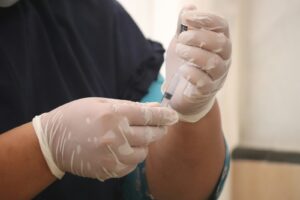Cornwall apologises for stopping disabled woman’s care payments
Cornwall Council has apologised after telling a disabled woman she could not pay her daughter to care for her.
A report by the local government and social care ombudsman found the woman had been using her direct payments to pay her daughter to provide care for her.
But Cornwall Council told the family this was not allowed because the daughter lived with her.
According to the report, the council said paid care could only be provided by a live-in family member in exceptional circumstances, where it could not be provided by an external agency.
In this case, the council believed the mother’s care could be provided by an agency.
But the council did not put any alternative care support in place, so the daughter felt she had no choice but to provide significant unpaid care for her mother. This meant she was unable to find paid work and left her without enough breaks to have her own social life or regular time off to relax.
The council eventually reimbursed the daughter for some of the period in which she provided care.
However, the council has not provided the mother with the support it accepts she needs since February 2019.
At the time of the initial investigation, it had not reinstated the direct payments, or even fully considered whether there were exceptional circumstances to do so.
‘By failing to provide a suitable alternative, the daughter felt she was left with no other option than to provide the care herself, to her own detriment,’ said ombudsman, Michael King.
‘I am pleased the council has now agreed to all of my recommendations, which should ensure other people in the county are not affected in a similar way.’
Responding to the report, Cornwall Council’s portfolio holder for adults, Cllr Rob Rotchell said: ‘We apologise for any distress caused to the individuals involved.
‘We have carried out all the recommendations in the report including reinstating the direct payments. We have worked extensively to engage with the family to ensure the right care is in place.
‘We are sharing with our colleagues the lessons learned in this case about direct payments and the use of medical evidence.’
Photo Credit – TimHill (Pixabay)
















